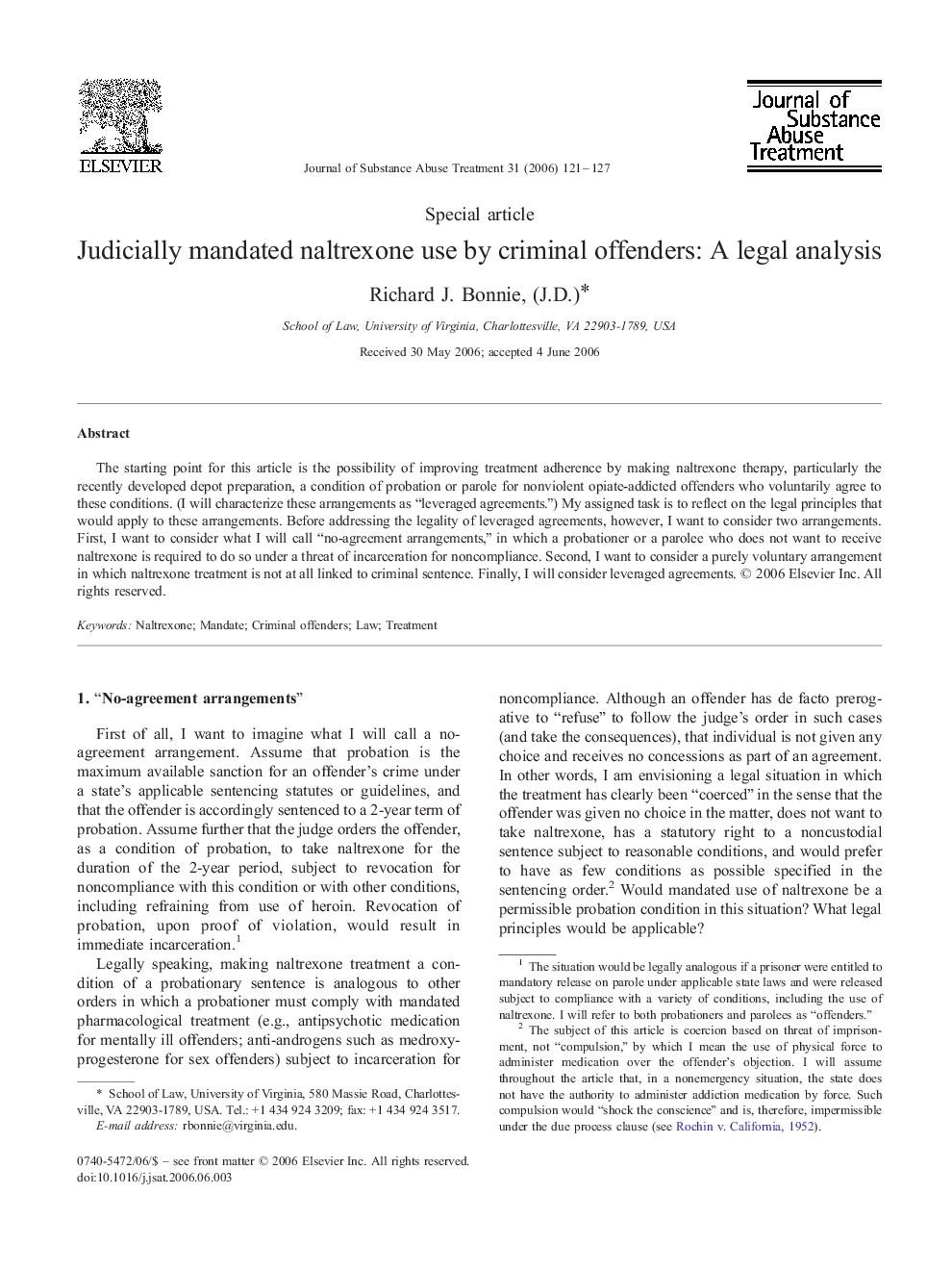| Article ID | Journal | Published Year | Pages | File Type |
|---|---|---|---|---|
| 330141 | Journal of Substance Abuse Treatment | 2006 | 7 Pages |
The starting point for this article is the possibility of improving treatment adherence by making naltrexone therapy, particularly the recently developed depot preparation, a condition of probation or parole for nonviolent opiate-addicted offenders who voluntarily agree to these conditions. (I will characterize these arrangements as “leveraged agreements.”) My assigned task is to reflect on the legal principles that would apply to these arrangements. Before addressing the legality of leveraged agreements, however, I want to consider two arrangements. First, I want to consider what I will call “no-agreement arrangements,” in which a probationer or a parolee who does not want to receive naltrexone is required to do so under a threat of incarceration for noncompliance. Second, I want to consider a purely voluntary arrangement in which naltrexone treatment is not at all linked to criminal sentence. Finally, I will consider leveraged agreements.
